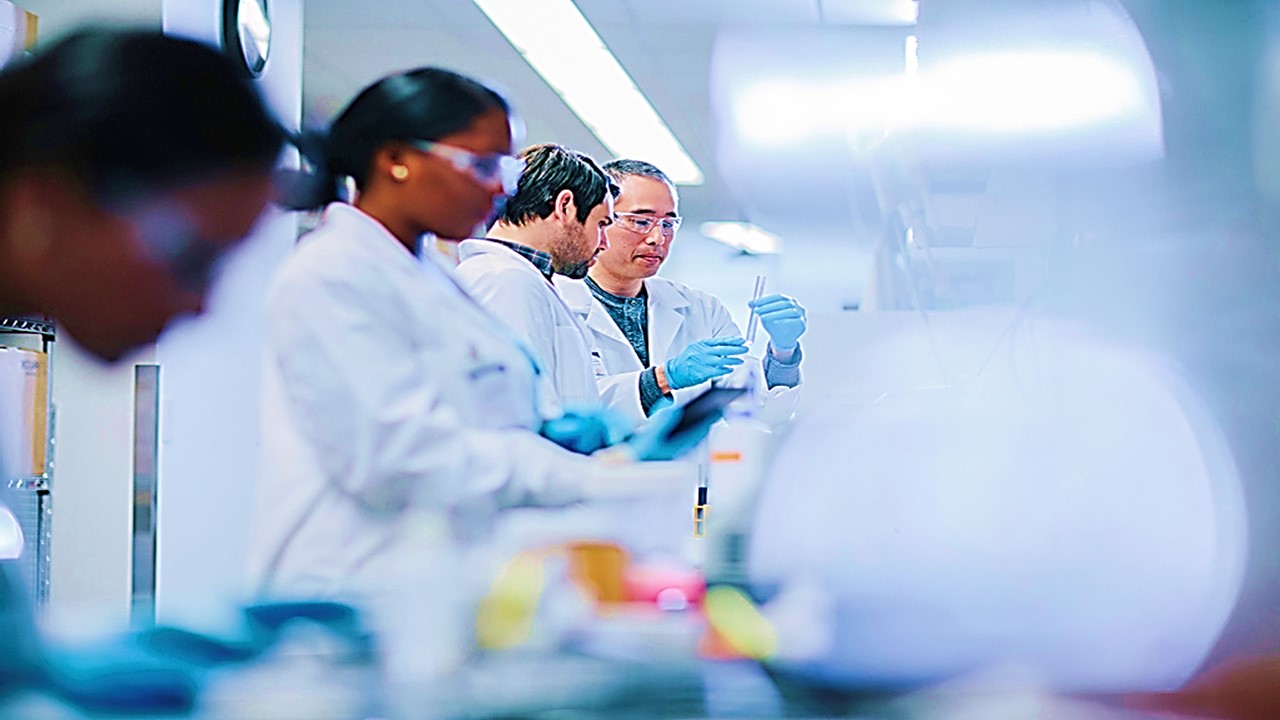The process of designing a clinical trial, carrying it out, and finishing it is incredibly complicated. There are many moving components for pharmaceutical sponsors and clinical research organizations (CROs) to take into consideration, from preclinical research to site selection, patient recruitment, and management of crucial data collecting. The procedure is further complicated by inadequate patient recruitment and low participant retention rates, particularly in trials targeting children with uncommon disorders.
More than three-fourths of all uncommon diseases are hereditary and impact patients in their pediatric years. Due to the hereditary nature of many conditions, it is possible for more than one child in a family to have the same uncommon ailment, making the already challenging process of enrolling in clinical trials even more challenging.
Trials in children are famously difficult and have certain obstacles to overcome. Since participants in pediatric trials are typically younger than 18, involvement frequently has an impact on the patient’s family as well as them. The parent of a kid with a rare condition sometimes fills multiple roles, such as that of chauffeur, advocate, researcher, dietitian, pharmacist, and teacher, among others.
Barriers to Trial Engagements
Numerous real and imagined obstacles prevent kids from taking part in pediatric trials, which lowers enrollment, retention, and completion rates and slows down the development of pediatric medicine, depriving kids of life-saving therapies.
A 30-year comparative examination of the challenges to diagnosing rare diseases was published by the National Organization for Rare Disorders (NORD). 90% of the roughly 7,000 uncommon disorders found according to the study were untreated, and nearly half of the pediatric trials were either abandoned or never published. Where does one begin when pediatric medical advancements are so much needed?
The Problem With Accessibility
It’s possible that some local doctors are qualified to identify and manage unusual diseases. In other situations, patients must seek treatment from a professional working at a more renowned medical facility. These facilities, which are typically in large cities, might be difficult for people to access in terms of hotel, transportation, and other arrangements if they need to make frequent appointments.
A BMC Family Practice study found that the majority of parents’ work schedules are impacted by their child’s medical treatments (DOI: 10.1186/s12875-016-0488-x) and that 39% of respondents in the analysis described above “need to travel 60 or more miles in 2019.” For families, the amount of time spent traveling, seeing multiple doctors, and finishing the numerous medical exams adds up rapidly. Parents may have to shoulder additional financial burdens owing to lost pay and potential job loss as a result of time away from work because more than 30 million U.S. workers claim they are not entitled to paid sick days.
Retention is Key
Since most patients with uncommon disorders have few therapeutic options, enrolling pediatric patients and retaining their clinical trial participation can be difficult. Their symptoms frequently worsen over time, leaving individuals exhausted and frail. Patient dropouts continue to be a serious problem for the entire industry, and retention is commercially and scientifically essential for the success of pediatric trials.
Pediatric sufferers with rare diseases and those who care for them often drop out as a result of the emotional strain of having to miss out on things like school or employment, invasive medical treatments, and financial instability. Patients and their caregivers are frequently given the difficult logistics of research trial participation. Given the severity of the condition and its unclear course, many people are unable to consider taking part in clinical trials.
The Case for Precision Medicine
When working with the families of numerous children with the same rare condition, pharmaceutical sponsors and CROs have certain questions to think about: Should the kids take part in the same trial at the same time? If so, what ethical repercussions would there be if one youngster received the new medicine and the other received a placebo? How will the trial’s pediatric participants’ and their caregivers’ emotional states be throughout? Are additional support services required for families with many sick children in order to maintain participation and trial accomplishment?
It Takes Two to Tango
Sponsors and CROs must understand they are working with the participant’s family as a whole, not just them, while designing a pediatric clinical study. Scheduling issues frequently arise because families with many children might be quite busy with extracurricular activities, jobs, and school commitments. It will be easier to manage expectations for everyone involved if everyone initially recognizes that pediatric trials need more flexibility.
Making the patient’s caregiver aware of the trial’s needs, particularly its emotional requirements, is a key component of putting the family dynamic first. When they witness a loved one in agony, many caretakers feel anguish. These stress levels can be considerably decreased by maintaining constant support and communication all throughout study.
Concierge Solutions: An Investment
Family members and caretakers are frequently expected to manage the responsibilities of trial participation in pediatric research trials. But helping families with their financial, logistical, and emotional difficulties can be quite impactful. Dependence on a single point of contact with good clinical practice certification and familiarity with the study protocol will provide a wealth of knowledge regarding the specific support requirements of various juvenile patients and their loved ones.
For example, ground transportation alternatives between their home and the clinical site, customized travel accommodations like wheelchair-accessible vehicles, and hotel rooms that abide by the Americans with Disabilities Act are provided to participants and caregivers enrolled in these studies. Additionally, they are eligible for assistance with visa requirements, document processing, and in-person or telephone interpreters.
Families should be aware that they will spend expenses when away from home for things like food, travel charges, parking, tolls, and other miscellaneous expenses. These expenditures may seem overwhelming and can add up quickly. Families participating in funded studies may be eligible for reimbursement of their out-of-pocket expenses. A patient concierge’s individualized assistance makes the reimbursement process simple and stress-free, helping families to concentrate on raising their children.
There will be numerous difficulties for families who have a kid with a rare disease, but for those who can participate in pediatric clinical trials, there is hope. A trial strategy that pairs the patient and their family with a reliable partner to assist them in navigating the experience gives them a chance at a potentially life-changing intervention.
Subscribe
to get our
LATEST NEWS
Related Posts

Clinical Trial Supply Chain
From Chaos to Control: The Clinical Reinvention of Supply Chain through Data-Driven Infrastructure
In a healthcare landscape increasingly dominated by automation and AI, it’s tempting to see technology as a cure-all.

Clinical Trial Supply Chain
Deciphering the Nexus: Cluster Analysis in Shaping Regional Supply Chain Hubs
Cluster analysis has become instrumental in understanding and optimizing supply chains.
Read More Articles
Myosin’s Molecular Toggle: How Dimerization of the Globular Tail Domain Controls the Motor Function of Myo5a
Myo5a exists in either an inhibited, triangulated rest or an extended, motile activation, each conformation dictated by the interplay between the GTD and its surroundings.













